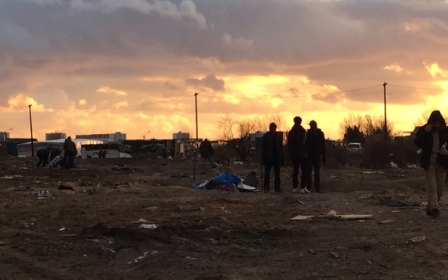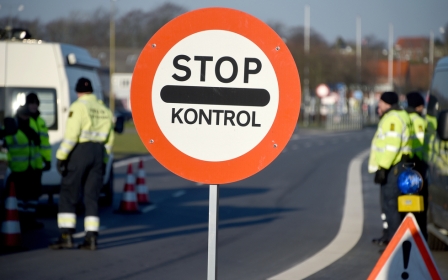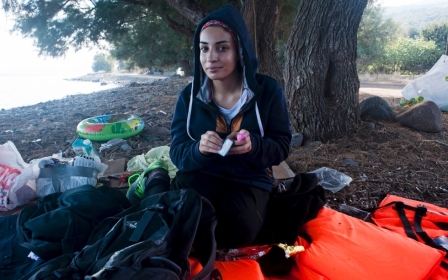Blame Europe not people-smugglers for the death of Alan Kurdi

Alan Kurdi’s death last September was a terrible tragedy. But two Syrians who were convicted of people-smuggling in a connected case in Turkey earlier this month are not responsible for the three-year-old's death.
Alan drowned because Europe did not provide him with safe passage. The responsibility ultimately lies with us, European citizens and our governments. We did not put the Kurdi family on a boat on that fatal night, but by refusing to do anything to alleviate the refugee crisis we created a job for people-smugglers like Mufawaka Alabash and Asem Alfrhad.
Europe’s efforts to fight smuggling – very often wrongly conflated with human trafficking – can only strengthen smuggling networks, and more importantly will lead to more predatory smugglers charging desperate people higher fees and putting them on overcrowded and even more flimsy vessels that will further endanger their lives.
People-smugglers are in principle only facilitators of irregular border crossing. Criminalisation is actually likely to turn them into traffickers who use coercion, as captive markets already exist, for example in Libya and the Sinai, where people on the move may be warehoused and tortured. Criminalisation is therefore counterproductive and will cause more deaths at the EU borders.
Strict migration regimes are a relatively new phenomenon dating back to the 1970s oil crisis, when legal pathways to Europe were replaced with irregular ones. And even up until the 1990s, Europe had not really witnessed irregular migration on a bigger scale.
In the 1990s, the growing number of asylum seekers was due to changes in the nature of conflicts around the world: 90 percent of conflicts have become internal ones, with civilians making up 90 percent of casualties and sexual violence becoming a weapon of war. As a consequence, refugee flows have since then been occurring as collective displacements due to the persecution of entire communities, rather than silencing of high-profile political dissidents.
The response of the West has been, in the jargon of the International Refugee Regime, containment, that is the preventing or "containing" the movement of refugees - by confining people to their region of origin and/or taking measures to make them return home as soon as possible - rather than providing them with asylum in the global North in general.
The reinforcement of Europe's external borders, marked by stricter visa requirements, coincided with the introduction of the passport-free Schengen zone. This development was not accompanied by relevant labour migration programmes or a common asylum system. Instead, free movement within Europe’s territory was juxtaposed with a new securitisation project of Europe as a fortress, fixated on the politics of deterrence.
This is when the smugglers’ business model was born, and like a parasite it thrives on barriers and restrictive migration policies.
There is a clear parallel between smuggling rings and drug wars: targeting them reinforces the supply side rather than addresses the demand.
And the demand is only getting higher, with more than 80 percent of irregular migrants coming now from the world’s top 10 refugee-producing countries including Syria, Eritrea, Afghanistan and Iraq. Just as in the case of drugs trafficking, criminalisation of people-smuggling is bound to drive it further underground, with risks being passed to the people and not to the smugglers, which is contrary to what the Turkish court’s sentence was trying to convey.
What is the solution to the problem? We don’t have to call for abolishing borders. It is enough to create border controls that will allow people – both those seeking work and protection – to safely reach Europe and build better lives for themselves and their families.
Furthermore, we don’t have to reinvent the wheel – we only have to look back at the policies we had up until the 1970s. The world has of course changed dramatically since then, but the principle of managing and administering migration, rather than criminalising it, remains the same. Legal pathways for both migrants and asylum seekers can undermine the smuggling business.
These include humanitarian visas (currently established only by Brazil); resettlement for protracted refugee situations (especially for Syrians unable to rebuild their lives in refugee camps in Jordan, Lebanon and Turkey); family reunification (for example for children who have families in the UK and try to reach Dover from the Calais Jungle); and labour migration programmes and the lifting of carrier sanctions (currently there is one Italian programme that flies Syrian refugees into the country).
Legal pathways are not only more humane but also facilitate an orderly management of migration, and can eliminate the chaos and violence that we have recently seen on the Balkan migration route. Safe passage is a win-win situation for all parties.
- Dr Natalia Paszkiewicz is a Projects Coordinator at the IARS International Institute. Her academic background is in anthropology, refugee studies and social policy. She has been working in the field of migration for over ten years, both in the UK and in Malta.
The views expressed in this article belong to the author and do not necessarily reflect the editorial policy of Middle East Eye.
Photo: Children sit inside a tent bearing an image of three-year-old Alan Kurdi, the Syrian toddler who's body washed up on a beach in Turkey, as Syrian refugees gather near the highway on the way to the Turkish-Bulgarian border at Edirne on 15 September, 2015 (AFP).
New MEE newsletter: Jerusalem Dispatch
Sign up to get the latest insights and analysis on Israel-Palestine, alongside Turkey Unpacked and other MEE newsletters
Middle East Eye delivers independent and unrivalled coverage and analysis of the Middle East, North Africa and beyond. To learn more about republishing this content and the associated fees, please fill out this form. More about MEE can be found here.





